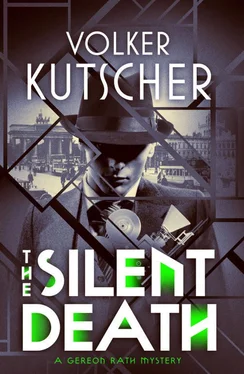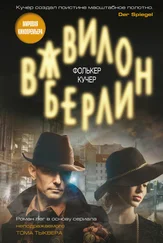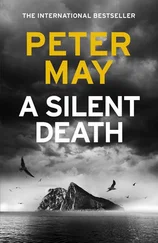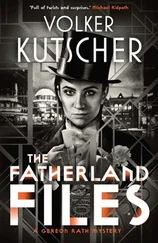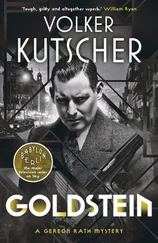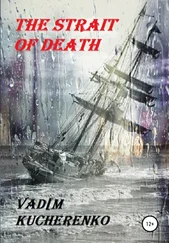Walking back to Potsdamer Platz, he wondered what was happening in Guerickestrasse. He hadn’t waited for his colleagues to arrive, simply taken leave of Plisch and Plum. Böhm would be annoyed, first because he hadn’t discovered Krempin’s hiding place himself, and second because Rath had slipped through his fingers again. Krempin too, the fact that they had discovered his hiding place didn’t change that.
Rath knew exactly when Felix Krempin had left the flat. Yesterday, when Mertens and Grabowski had gone for food and their replacement, Detective Inspector Gereon Rath, had left his observation post to take a look around. Krempin had telephoned to make sure the street remained clear before leaving his hiding place, which had been turned into a trap thanks to the permanent lookout stationed outside the door. Even if no one else knew, Rath realised he had screwed up. He swore to rectify his error.
As he crossed the square a little BMW emerged from a parking space, creating the ideal spot for a Buick. Pschorr Haus was situated on Potsdamer Platz and Rath had often driven past without entering the building. Cigarette smoke and the smell of beer greeted him in the dark, wood-panelled bar. He stopped a waiter balancing a tray full of beer steins and asked where today’s meeting was taking place.
‘You mean the movie theatre owners?’
He nodded.
‘Go past the bar, and through the big door on the right. They’ve already started.’
‘Doesn’t matter,’ Rath said. ‘They always save the best till last.’
He opened one of the double doors and saw the backs of people’s heads. Someone was speaking from the platform at the front and all were spellbound. A few heads turned when he entered, their faces ranging from curious to reproachful. He quickly closed the enormous oak doors behind him, shutting out the mishmash of voices and clinking of glasses from the bar.
With the audience’s attention having returned to the speaker, he allowed his gaze to wander. He couldn’t see Oppenberg anywhere.
He made his way slowly along the rows of tables, careful not to obscure anyone’s view or be too conspicuous. Everyone was looking at the speaker, who was saying something about the art of film-making and how sound film was destroying that art. Sound film, in short, signified the death of cinematics. It wasn’t a subject Rath was particularly interested in. He liked films the way they were, particularly when the cinema employed an orchestra and not just an organist or piano player; but these new films, in which people spoke, were a different matter. Although what was being said onstage meant little to him, he couldn’t resist the effect of the slightly husky yet pleasant voice delivering the words of protest into the microphone.
The room was almost full, and he was surprised that so many cinema owners were going to the barricades against sound film. Wasn’t it progress? Shouldn’t they be happy? There were posters on the walls, some of which he had already seen hanging in cinema displays.
Sound film is the death of cinematics , proclaimed one. The picture palaces die when films talk.
Manfred Oppenberg was seated at a table in the front row, his white-haired head resting thoughtfully in his hand.
The man on the platform finished his speech and Rath made his way towards Oppenberg’s table through the applause. Before he could reach him, however, the producer stood up to shake the speaker, who had just descended the platform, by the hand, only then to step onto the platform himself.
Rath would have to listen to another speech.
‘Good evening!’
Rath turned round. The speaker proffered a hand. Tall and thin, in his mid-twenties at most, the type of person who enters a room and is immediately the centre of attention.
‘It’s good that you came, even if you are a little late. We need all the support we can get. Though I… I’m afraid I don’t remember which movie theatre you run…’
‘The one at Alex. I’m here to speak to Herr Oppenberg.’ Rath showed his badge. ‘In private,’ he added.
‘Then please take a seat while Herr Oppenberg is speaking,’ the man said, gesturing towards a table in the second row. ‘Can I get you something to drink?’
‘I wouldn’t say no to a beer.’
Rath sat down, gratefully accepting the beer brought to him by a waiter, and listened.
Oppenberg was defending talkies. No wonder, he was filming a number himself. He admitted that it wasn’t easy making the switch to the new, expensive technology, but if you missed the boat you’d find yourself stranded at the harbour. Realising he was in danger of incurring the audience’s displeasure, he skilfully changed tack.
‘It goes without saying that Montana Film will continue to produce the high-quality silent films for which it is renowned,’ he said. ‘And that we will gladly deliver them to your theatres.’ He saw no tension between sound and silent films: ‘both art forms are legitimate, and both will find their audience – and their theatres.’ He continued on the technical and licensing aspects of sound film, and Rath was soon lost.
‘We all know that the question of whether to use optical or stylus sound is above all a patenting issue. A struggle is being waged for patents and licences, for market control and for monopolies, and it is being waged at our expense, at the expense of film-makers, theatre operators and the public.’ Oppenberg took a sip of water and assessed the effect of his words. ‘What pains you, gentlemen, is not knowing which technology to invest in. Believe me: I don’t merely understand your despair, I share it. Why should installing technology from Western Electric preclude you from playing films made in Germany? And why should choosing Klangfilm machines mean you have to miss out on American films? Or pay high licensing fees in addition to all the costs sound film already entails. It is, and let me make this perfectly clear, an unsatisfactory state of affairs. Not just for cinema owners and for myself as a producer of motion pictures. No, above all it is unsatisfactory, indeed completely unacceptable, for those people for whose pleasure we all work tirelessly – that is, for our viewers!’
Despite isolated catcalls, the majority of cinema owners applauded courteously, if still a little warily. Oppenberg had managed to turn it around. He thanked his audience briefly and descended the platform, looking more pleased than surprised to see Rath.
‘Herr Rath, what a surprise. I hope you’re bringing good news!’
Before Rath could respond, the previous speaker had clasped Oppenberg’s hand and was thanking him for his contribution.
‘It was no more than anyone would have done, my dear Marquard,’ Oppenberg said. ‘We’re in the same boat: cinema owners, producers, it doesn’t matter!’
‘I had hoped, however, that you might delve a little more closely into the artistic side of things. Shouldn’t that be of greater concern to you as a film-maker?’
He really did have an impressive voice. Even when it was expressing disapproval, it sounded warm and reassuring.
Oppenberg genuinely seemed embarrassed. ‘Everybody has their own opinion, Herr Marquard. For me it’s a question of whether we can overcome the challenges sound film presents. That ought to be of interest to you too, with your film lab and distribution firm. We can’t leave everything to Ufa.’
‘For me, it’s always been about the art. That’s the reason I manage movie theatres. You, however, are in the happy position of being able to make films, which, sadly, is not a talent I possess.’
‘Cinematics as we know it is flourishing, that is true, but I am certain that sound film can become an art form in its own right. That’s what we’re working towards.’
Читать дальше
